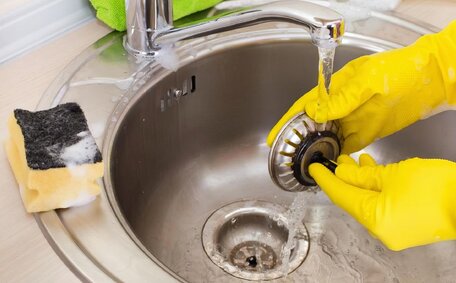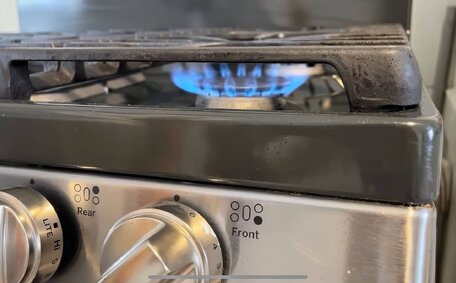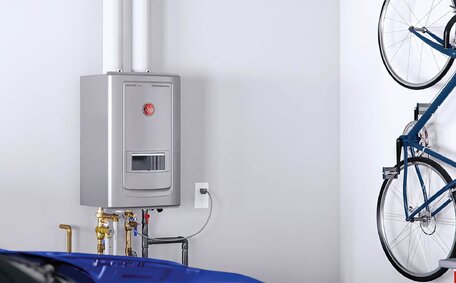What Causes Pipes to Freeze and Burst?
Freezing temperatures are the main culprit behind frozen and burst pipes. Freezing temperatures are the main culprit behind frozen and burst pipes.
When water inside pipes drops to freezing, 32°F (0°C), it expands as it transitions to ice. When water inside pipes drops to freezing, 32°F (0°C), it expands as it transitions to ice.
Location is also a key factor. Cold air can quickly chill these pipes to the point of bursting. Areas with very cold, frequent subzero temperatures during winter are high-risk. Cold air can quickly chill these pipes to the point of bursting.
A pipe can be particularly susceptible to freezing if it’s located against exterior walls or in uninsulated areas like attics, basements, or crawl spaces.
During the winter months, slow-dripping or constricted water flow are warning signs that there might be potential freezing. Partial thaws can result in significant pressure build-up, which pressure can cause pipes to burst as they weaken. It’s critical to know how prevent frozen pipes and to make sure you take preventative measures to protect your house before pipes freeze entirely.
If your pipes freeze, you might face a situation where no water comes from your taps at all.
Identifying Pipes at Risk for Freezing
To identify pipes most vulnerable to freezing, inspect areas in your Pennant Hills home that are unheated or have more exposure to cold outside air. Check the attic, crawl spaces, basements, garages and any rooms along exterior walls. Pipes next to outside facing walls or windows are likely freezing spots as heat can escape easily through these areas.
Also examine pipes under your kitchen cabinets, and open cabinet doors behind appliances, and under sinks along outside walls where cold drafts can reach easily. Inspect where pipes enter the home and look for gaps or cracks that allow cold air inside. Use insulation or sealants to prevent allowing cold air into your home’s pipe trouble spots.
You can turn water taps on slightly and maintain indoor temperatures at 60°F (15°C) or higher during winter to protect your water pipes. To prevent your pipes freezing, it’s essential to keep them insulated as they are at risk of bursting when exposed to sustained below freezing temperatures. Consider a smart thermostat that efficiently circulates warm air from your heating system into vulnerable spaces, preventing your pipes from freezing when you’re away.
Slowing water from taps, low pressure or no water at all are signs that you might have pipes frozen. Take immediate action as a frozen pipe can burst and cause extensive damage to the pipes your home depends on.
Preventing Freezing: Insulation, Heat Sources, and Other Strategies
Here are a few tips Pennant Hills homeowners can use to prevent frozen pipes during cold weather:
- Insulate pipes in unheated areas like attics, crawl spaces, basements and garages using proper insulation wrap or foam covers. Ensure all pipework is fully insulated with no gaps to keep cold air into your pipes at bay.
- Install UL-certified heat tape or heat cable wraps on pipes in high-risk areas. Do use products rated for colder temperatures.
- Let taps drip during extreme cold to prevent water freezing within pipes. A continuous trickle can keep water from freezing by ensuring water keeps moving and thus, prevent pipes from freezing.
- Install radiator-style space heaters to warm uninsulated areas, indirectly warming your taps to reduce freezing risks. Position safely away from combustibles to reduce risk of fire.
- Open interior doors to let warm air circulate to vulnerable pipe locations.
- Set the thermostat to at least 15°C throughout your home, even when away. Consider adjusting your thermostat to prevent freezing.
- Seal any cracks and gaps allowing cold exterior air to reach pipes. Use caulk or insulation to fill openings.
- By turning off your hose, ensuring it is drained, and that the water supply to outside taps is disconnected, you can prevent freezing. Turn off your outside sprinkler systems and drain them.
- Insulate the walls and safeguard your home’s water pipes and water tanks in unheated spaces like garages, attics, and crawl spaces.
Understand what you can do to prevent pipe damage well before freezing weather arrives. You can take swift action at the first sign of frozen pipes to prevent ruptures and water damage.
Detecting and Monitoring Frozen Pipes
There are a few key signs that indicate your pipes are freezing or already frozen in your Pennant Hills home:
- A noticeable drop in water pressure from faucets and taps
- Sudden loss of hot water and the inability to get cold water flowing
- Strange noises like banging or cracking coming from pipes
- Icicles or frost forming on exposed pipes
Make it a habit to check your pipes in unheated areas and along exterior walls during cold snaps. Visually check exposed pipes for icy buildup and feel accessible pipes for extremely cold temperatures.
You can monitor the ambient temperature around pipes using remote thermometers or temperature sensors. Smart thermostats can help you monitor and regulate your heating system from afar. Keep your indoor temperatures above 4°C in areas vulnerable to protect your property.
Catching frozen pipes early gives you the best chance to thaw pipe safely. Persistent loss of water flow is a clear sign to call plumber immediately to prevent a frozen burst.
Thawing Frozen Pipes Safely and Effectively
When addressing frozen pipes in your Pennant Hills home, shut off your water to avoid burst pipes or water damage should be a top safety priority. You should never use open flames or excessive heat like blowtorches or high-powered heat guns to thaw pipes, as this can damage the pipes or cause fires.
Start by running water through your frozen pipe by turning the water on at the faucet connected to it to allow flow once thawing begins. This relieves pressure and ensures that, even if no water comes out at first, any thawed water will eventually flow.
Do apply heat by using a hair dryer on the low setting to gently warm the section of pipe that is frozen. Keep the hairdryer active on the frozen section pipe to help thaw and keep pipes from refreezing too quickly. Wrapping towels around the frozen area of the pipe helps retain warmth and assist in thawing the frozen water within.
A portable space heater positioned near frozen pipes can also warm up the area slowly and help thaw ice blockages. It’s good to keep flammable materials away and monitor the pipes to avoid overheating.
For pipes in difficult to reach areas, products like pipe heating cable wraps are a safer, and it’s a good idea to install them well before freezing occurs. These electrically heat pipes from the inside to maintain flow.
If dealing with a pipe frozen to the extent that it’s ruptured and begun leaking, turn off water supply immediately. Drain any remaining pipe water. Then call your local Pennant Hills plumber for emergency repairs before water damage spreads.
Avoid DIY repairs unless the frozen pipe is easily accessible. Getting thawing done right takes experience. Our plumbers can assess your pipes and determine the safest and most effective thawing method.
Emergency Response: Stopping Water Flow and Repairing Burst Pipes
A burst pipe is a plumbing emergencol>
Know where your stopcock or mains water shutoff valve is for your home and ensure it’s fully shut off. This is usually near the water metre or front external hose tap, where you can turn the water off completely. Stop your water supply by rotating the valve clockwise.Turn off the water supply to appliances like dishwashers and washing machines. This prevents pressurised hoses from bursting.Turn on taps throughout the house to drain excess water from pipes and relieve pressure.Call Pennant Hills Plumbing immediately on 1300 349 338 for emergency plumbing repairs and containment. Provide your address and details of the situation.Until the plumber arrives, contain the burst pipe area with towels, buckets or a plastic sheet. But avoid direct contact with any electrical devices.Move furniture, rugs, artwork and valuables out of harm’s way to prevent water damage.Turn off power at the breaker if water is near electrical outlets or appliances.Make a note of damage and take photos for your insurance company purposes. Contact your provider once the situation is under control.Our team of licenced plumbers are available 24/7 to respond, assess and repair burst pipes in Pennant Hills homes.
We also offer emergency containment services until repairs are completed. Don’t hesitate to contact Pennant Hills Plumbing when pipes fail unexpectedly. Swift action minimises damage and disruption.
Long-Term Solutions: Upgrading Plumbing and Insulation
To help prevent frozen and burst pipes, your home can undergo long-term plumbing and insulation upgrades:
- If your home older systems are problematic, replace old galvanised steel and iron pipes with PEX or copper piping, which are more elastic and cold-resistant.
- To safeguard against freezing, insulate your water supply lines in unheated areas like crawlspaces and attics using insulation wraps rated for cold climates.
- Improve home insulation with upgrades like weatherstripping, wall and ceiling insulation, and draught-proof windows and doors.
- Install heat trace cable along pipes in exposed areas to add constant warmth preventing freezing.
- Convert your water supply system to a drain-back design that empties all exterior pipes during freezing conditions.
- Consider reconfiguring plumbing to bring vulnerable pipes inside your home’s insulated envelope.
- Install a gas pilot light or electric heat tape near your boiler to add warmth.
- Learn more about optimal plumbing solutions by consulting with a qualified Pennant Hills plumber. They can advise the most suitable upgrades to prevent future frozen pipe incidents.
With your plumbing optimised for cold winters and good insulation, you can fortify your Pennant Hills home against freezing pipes and costly water damage.






